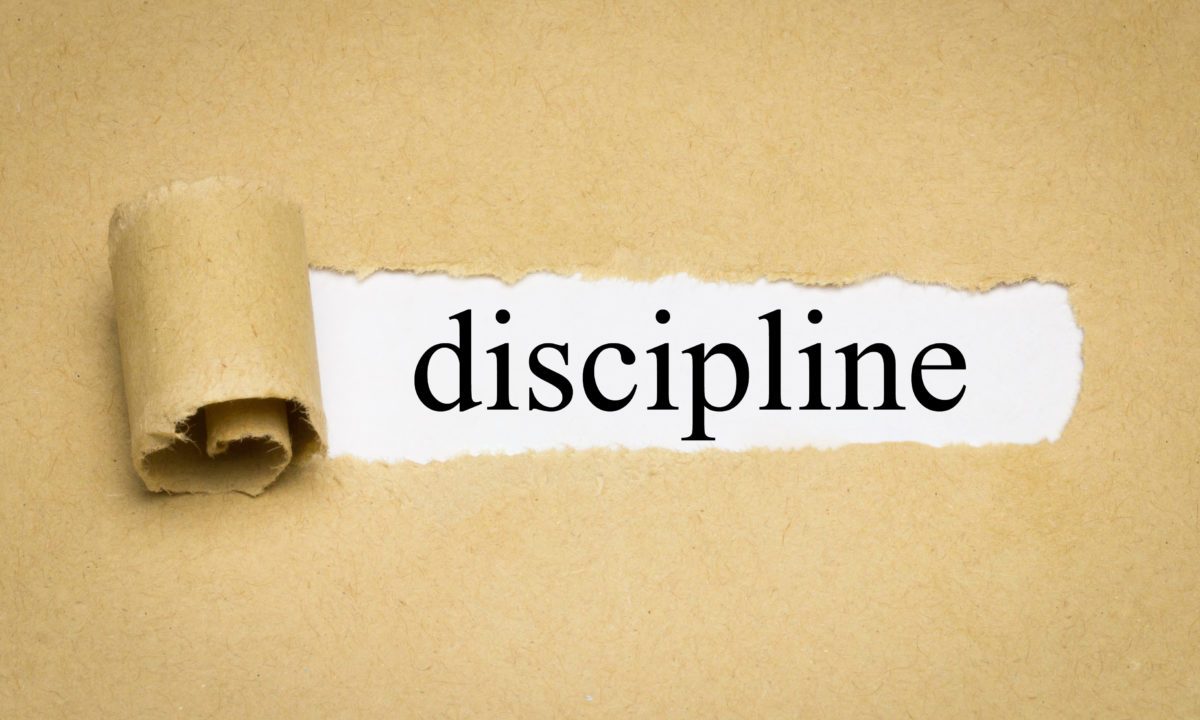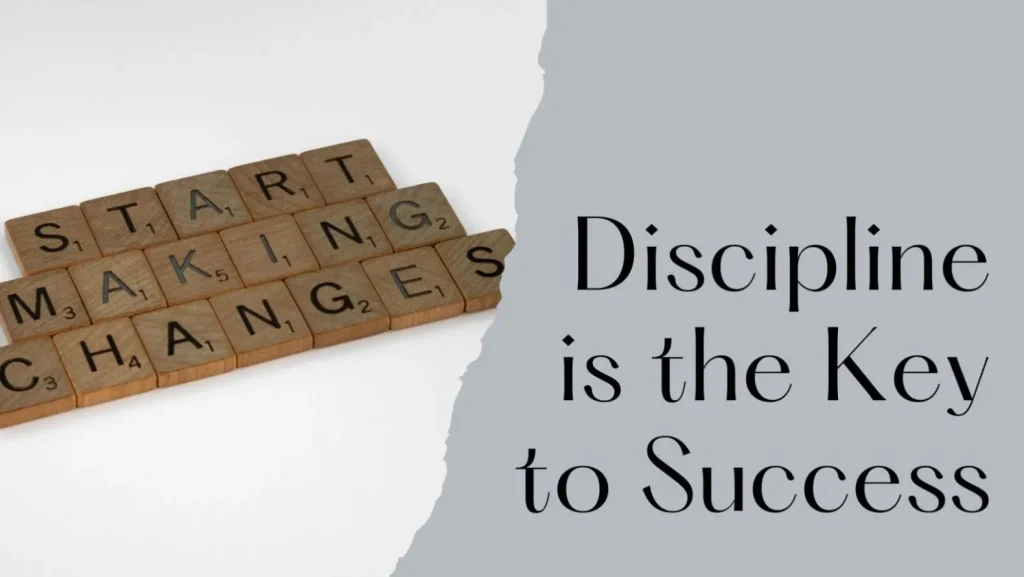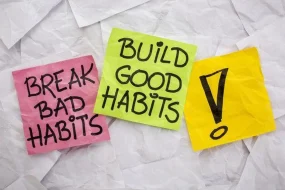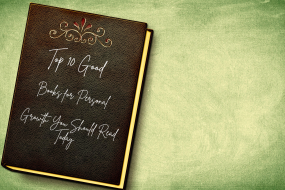- Home
- Self Improvement / Productivity
- Mastering Discipline: Unlockin ...

The Modern Battle Against Distraction
We’ve all been there: staring at a to-do list that feels more like a monument to our shortcomings. You promised yourself you’d start that side hustle, learn a new language, or finally declutter the garage. But here you are, again, scrolling through Instagram reels or rewatching The Office for the tenth time. The guilt creeps in—Why can’t I just stick to my plans? The answer isn’t a lack of ambition or even laziness. It’s the absence of a critical skill that separates dreamers from doers: discipline.
Discipline isn’t about punishing yourself with rigid schedules or denying life’s pleasures. It’s the quiet, persistent practice of showing up for your future self, even when the present feels chaotic. In a world where distractions are engineered to hijack your attention—algorithms feed you endless dopamine hits, and apps are designed to keep you scrolling—cultivating discipline is an act of rebellion. It’s the art of choosing long-term fulfillment over fleeting satisfaction. Consider Jocko Willink, a retired Navy SEAL commander, who famously says, “Discipline equals freedom.” When you master it, you’re no longer a slave to impulses or external demands. You become the architect of your life.
The Psychology of Discipline: How Your Brain Rewires Itself?
Why does discipline feel so unnatural? The answer lies in our evolutionary biology. For millennia, humans survived by prioritizing immediate rewards—eating calorie-dense food, avoiding predators, and seeking shelter. Our brains evolved to crave instant gratification, a trait that clashes with modern goals like saving money, maintaining fitness, or building a career. The prefrontal cortex, responsible for decision-making and long-term planning, often loses the battle against the amygdala, the brain’s primal “reward center.”
But there’s hope. Neuroplasticity—the brain’s ability to reorganize itself—means discipline can be learned. Every time you resist a distraction or stick to a routine, you strengthen neural pathways associated with self-control. The Stanford Marshmallow Experiment, conducted in the 1960s, demonstrated this beautifully. Children who delayed eating a marshmallow for 15 minutes (to earn a second one) grew into adults with higher SAT scores, lower obesity rates, and better stress management skills. This isn’t just about willpower; it’s about rewiring your brain through repetition.
Motivation, while inspiring, is a fickle ally. It’s the spark that ignites action but rarely sustains it. Discipline, on the other hand, is the steady flame that keeps you moving forward. Think of Olympic athletes: They don’t train because they wake up feeling inspired. They train because their systems—coaches, schedules, accountability partners—transform discipline into a non-negotiable habit.
Why Discipline Is the Cornerstone of Every Form of Success?

Discipline isn’t reserved for CEOs or elite athletes. It’s the invisible force behind progress in every domain of life, from personal health to professional milestones.
In careers, discipline separates the reliable from the erratic. A manager might have groundbreaking ideas, but if they miss deadlines or deliver inconsistent work, their reputation suffers. Conversely, an employee who consistently meets expectations, communicates proactively, and invests in skill-building becomes indispensable. Elon Musk’s relentless work ethic—scheduling his day in five-minute blocks—is a testament to how structured discipline drives innovation at scale.
Health and fitness thrive on discipline, not quick fixes. A single salad won’t reverse years of poor eating, and one workout won’t transform your physique. But daily choices—opting for a walk over Netflix, meal prepping on Sundays, prioritizing sleep—compound into lifelong vitality. Dwayne “The Rock” Johnson’s 4 AM gym sessions aren’t fueled by motivation; they’re the result of decades of ingrained discipline.
Financial freedom is another byproduct of disciplined habits. Saving 10 daily might seem trivial, but it grows to over 150,000 in 30 years. Warren Buffett’s frugality—living in the same Omaha home he bought in 1958—allowed him to reinvest earnings and build one of history’s greatest fortunes.
Mental resilience, perhaps the most underrated benefit, grows from disciplined practices. When life inevitably throws curveballs—a job loss, a health crisis, a broken relationship—discipline provides the scaffolding to rebuild. It teaches you to focus on controllable actions rather than spiraling into anxiety.
Debunking Myths: What Discipline Really Means?
Misconceptions about discipline often deter people from embracing it. Let’s dismantle two pervasive myths:
Myth 1: Discipline is joyless.
This couldn’t be further from the truth. Discipline isn’t about deprivation; it’s about prioritization. By completing tasks efficiently, you create time for guilt-free leisure. Imagine finishing your work by 5 PM and enjoying an evening with loved ones—no looming deadlines, no nagging stress. Discipline doesn’t erase fun; it amplifies it by eliminating the shadow of unfinished responsibilities.
Myth 2: Discipline requires innate talent.
Discipline is a skill, not a genetic trait. No one is born with an iron will. It’s cultivated through practice, much like learning a language or playing an instrument. David Goggins, a former Navy SEAL and ultramarathon runner, epitomizes this. Once an overweight, underachieving young man, he transformed his life through sheer discipline—a choice available to anyone willing to put in the work.
5 Science-Backed Ways to Build Unshakable Discipline
Because discipline isn’t about gritting your teeth—it’s about designing a life where good habits thrive on autopilot.
1. Start So Small It Feels Almost Too Easy
Imagine trying to lift a 200-pound weight on day one at the gym. You’d collapse. Discipline works the same way—it’s a muscle that strengthens slowly. James Clear’s 2-Minute Rule isn’t just a productivity hack; it’s rooted in how our brains resist change. When you start with microscopic habits—like reading one page, doing two push-ups, or writing a single sentence—you sidestep the mental resistance that derails most people. These tiny actions act as psychological kindling, sparking momentum without triggering your brain’s inner critic.
Take John Grisham, for example. Long before he became a household name in legal thrillers, he was a rookie lawyer juggling a chaotic schedule. Instead of vowing to write a novel overnight, he committed to waking up 30 minutes early each day. Some mornings, he’d stare at a blank page. Others, he’d scribble half a scene. But those fragile, consistent efforts snowballed into A Time to Kill—and later, a career spanning 47 novels. The lesson? Progress isn’t about heroic leaps; it’s about showing up daily, even if you’re crawling. As Grisham says, “You can’t edit nothing.”
- Habit stacking: Pair your tiny habit with an existing routine (“After I brew coffee, I’ll write one sentence”).
- Track progress visually: Use a habit tracker app or a physical calendar to see your streak grow—it triggers dopamine.
- Celebrate “ugly” wins: Did you meditate for 30 seconds while distracted? That still counts. Perfection is the enemy of momentum.
2. Turn Your Environment Into a Silent Ally
Your willpower is like a smartphone battery—it drains fast. Relying on it to resist temptation is a losing game. Instead, redesign your surroundings so good habits happen effortlessly and bad ones require Olympic-level effort. Let’s say you want to eat healthier. A 2018 study in Health Psychology found that people who kept fruit on their kitchen counters ate 67% more produce than those who didn’t. Why? Because visibility reduces friction. Conversely, hiding junk food in the back of the pantry (or better yet, not buying it) adds layers of inconvenience to poor choices.
But this isn’t just about snacks. Want to focus at work? Delete social media apps during work hours and use tools like Freedom to block distracting websites. Better yet, make your laziness work for you: set your phone’s grayscale mode to reduce addictive scrolling, or leave your gym shoes by the front door so skipping a workout means tripping over them. As behavior scientist BJ Fogg says, “You change your life by redesigning your context, not by white-knuckling your way through the day.”
- Create “frictionless zones”: Pre-portion healthy snacks in clear containers, or set up a dedicated workspace with zero clutter.
- Use scent as a trigger: Light a candle or diffuse peppermint oil when working—your brain will associate the smell with focus.
- Automate decisions: Schedule recurring grocery deliveries for healthy staples to avoid impulse buys.
3. Obsess Over Systems, Not Finish Lines
Goals are seductive—they promise a shiny trophy at the end. But trophies collect dust. Systems, on the other hand, are the daily rituals that turn ambition into reality. Take Jerry Seinfeld’s legendary “Don’t Break the Chain” method. He didn’t aim to write the perfect joke every day; he focused on marking an X on his calendar each time he sat down to write. The chain of X’s became a visual trophy of consistency, not perfection. Over time, those X’s built a career defined by relentless progress, not fleeting victories.
Science backs this up. A 2022 study in Nature Human Behaviour tracked people pursuing goals like learning a language or losing weight. Those who fixated on systems (“I’ll practice Spanish for 15 minutes daily”) achieved their objectives three times faster than those obsessed with outcomes (“I need to be fluent by June!”). Why? Systems remove the pressure of an end date and let you fall in love with the process. So instead of vowing to “write a book,” try “I’ll draft 200 words with my morning coffee.” Small, repeatable, and shame-proof.
- Batch “failure days”: Allow yourself 1-2 days a month to skip your habit guilt-free—it prevents burnout.
- Focus on inputs, not outputs: Track time spent (“30 minutes of writing”) instead of results (“1 chapter”).
- Create a “minimum viable effort” rule: Even on chaotic days, do 10% of your habit (e.g., 2 squats instead of 20).
4. Let Social Accountability Do the Heavy Lifting
Humans are tribal creatures—we hate letting others down. Leverage this instinct by turning your goals into shared commitments. Fitness app Strava revealed that runners who posted workouts publicly stuck to their routines 40% more consistently. Why? Because announcing your plans activates what psychologists call the “commitment effect”: once we declare an intention aloud, our brain treats it as a social contract.
But accountability doesn’t require a cheering squad. Apps like StickK let you bet money on your goals—miss a workout, and your cash goes to a charity you despise (think: a political rival’s campaign). Or partner with a friend for weekly check-ins, where honesty trumps ego. As author Gretchen Rubin notes, “We’re more likely to do what others are watching… even if the ‘others’ are just a sticky note on your mirror.”
- Join a challenge with strangers: Online communities like 75 Hard or Reddit’s /r/GetDisciplined thrive on collective grit.
- Publicly pre-commit: Post on social media, “I’m running a 5K in 3 months—ask me about my training!”
- Leverage “anti-charities”: Donate to a cause you dislike if you fail—it’s a potent motivator (e.g., $10 to a rival sports team’s fan club).
5. Reframe Discomfort as Your Secret Superpower
Discipline isn’t about avoiding discomfort—it’s about rewiring your brain to see struggle as proof of growth. Navy SEALs endure brutal training not because they love pain, but because they’re taught to reinterpret it. That burning feeling during a run? It’s not agony—it’s your body upgrading its endurance. That resistance to starting a project? It’s not laziness—it’s your fear of imperfection losing its grip.
A 2021 study found that people who linked discomfort to progress (“My sore muscles mean I’m getting stronger”) stuck to habits twice as long as those who saw it as a nuisance. Next time you’re tempted to bail, pause and ask: “What if this feeling isn’t a wall, but a doorway?” As ultrarunner David Goggins says, “You don’t hate the work—you hate the idea of the work. Once you start, the monster in your mind shrinks.”
- Name your resistance: Label the feeling (“This is the ‘I’m growing’ ache”) to detach from its intensity.
- Pair discomfort with rewards: Finish a tough workout? Watch an episode of your favorite show guilt-free.
- Practice “micro-bravery”: Do one thing daily that scares you slightly (e.g., cold shower, speaking up in a meeting).
6. Fuel Your Willpower: How Healthy Eating Builds Discipline

Discipline isn’t just about grinding through tasks—it’s a holistic practice that starts with how you nourish your body. Think of your brain as a high-performance engine: you wouldn’t pour sugary sludge into a Ferrari and expect it to race. Research shows that diets high in processed foods and sugar impair focus, drain energy, and sabotage self-control. A 2019 study in Appetite found that participants who ate balanced meals with protein, healthy fats, and complex carbs made 23% better decisions under stress compared to those relying on quick carbs.
But here’s the beautiful loop: discipline helps you eat better, and eating better strengthens your discipline. For example, meal prepping requires planning (a disciplined habit), but the stable energy from nutrient-dense meals also fuels your willpower reservoir for other goals. It’s a self-reinforcing cycle.
- Start with one “anchor meal”: Master a healthy breakfast (think eggs, avocado, oats) before overhauling your entire diet. Small wins build confidence.
- Use the “outer ring” grocery hack: Shop the perimeter of the store (produce, meats, dairy) to avoid processed food temptations.
- Pair habits: Listen to your favorite podcast only while chopping veggies—it turns meal prep into a reward.
Discipline isn’t a solo act—it’s a symphony of habits, environment, and biology. Just as you’d sharpen a knife before carving wood, sharpening your body with nourishing food primes you to tackle bigger challenges. Remember: you can’t outwork a bad diet. But with the right fuel, you’ll find that showing up—whether at the gym, your desk, or the kitchen—stops feeling like a battle and starts feeling like second nature.
For a deep dive on making healthy eating effortless (and even fun), explore my guide: Your Friendly Guide to Eating Better and Feeling Great. You’ll find science-backed meal frameworks, snack swaps that don’t taste like punishment, and strategies to silence cravings.
The Real Secret? Discipline Is a Practice, Not a Personality Trait
Building discipline isn’t about transforming into a productivity robot. It’s about creating a lifestyle where good habits feel inevitable, not exhausting. Start smaller than your ego wants. Engineer your environment to make success the path of least resistance. Celebrate showing up, even when it’s messy. And remember: every time you choose the harder path, you’re not just checking a box. You’re proving to yourself that you’re the kind of person who keeps promises—especially the ones you make to yourself.
Now go build that legacy, one tiny, stubborn step at a time.
Navigating Setbacks with Grace
Even the most disciplined stumble. Here’s how to recover:
Procrastination: Use the *10-Minute Rule*. Commit to working for just 10 minutes—you’ll often find momentum to continue.
Burnout: Schedule “reset days” with no productivity goals. Sleep in, hike, or binge a show guilt-free. Rest isn’t laziness; it’s part of the discipline cycle.
Self-Doubt: Practice self-compassion. Replace “I failed” with “I’m learning.” Studies show self-kindness boosts resilience more than self-criticism.
Discipline in the Digital Age: Reclaiming Your Focus

Tech companies spend billions to hijack your attention. Fight back with tactical tools:
Focus Apps: Forest gamifies focus by growing virtual trees as you work. Freedom blocks distracting websites.
Time-Blocking: Assign tasks to specific hours (e.g., “9–11 AM: Deep Work”). Author Cal Newport credits this method for writing six books in eight years.
Batch Tasks: Group similar activities (e.g., emails, calls) to minimize mental fatigue from switching gears.
Discipline Is a Practice, Not a Perfection
Discipline isn’t about flawless execution—it’s about showing up again and again. Start with one micro-habit: a five-minute walk after lunch, a nightly gratitude journal, or a morning planning ritual. Track progress in an app like Habitica, and watch small actions compound into transformative results.
As Abraham Lincoln said, “Discipline is choosing between what you want now and what you want most.” Choose wisely, and watch your life align with your boldest visions.






